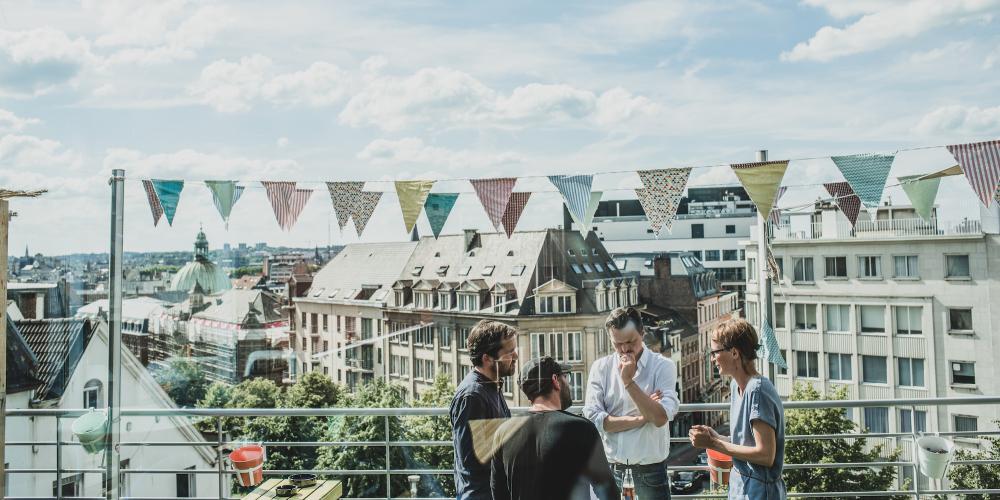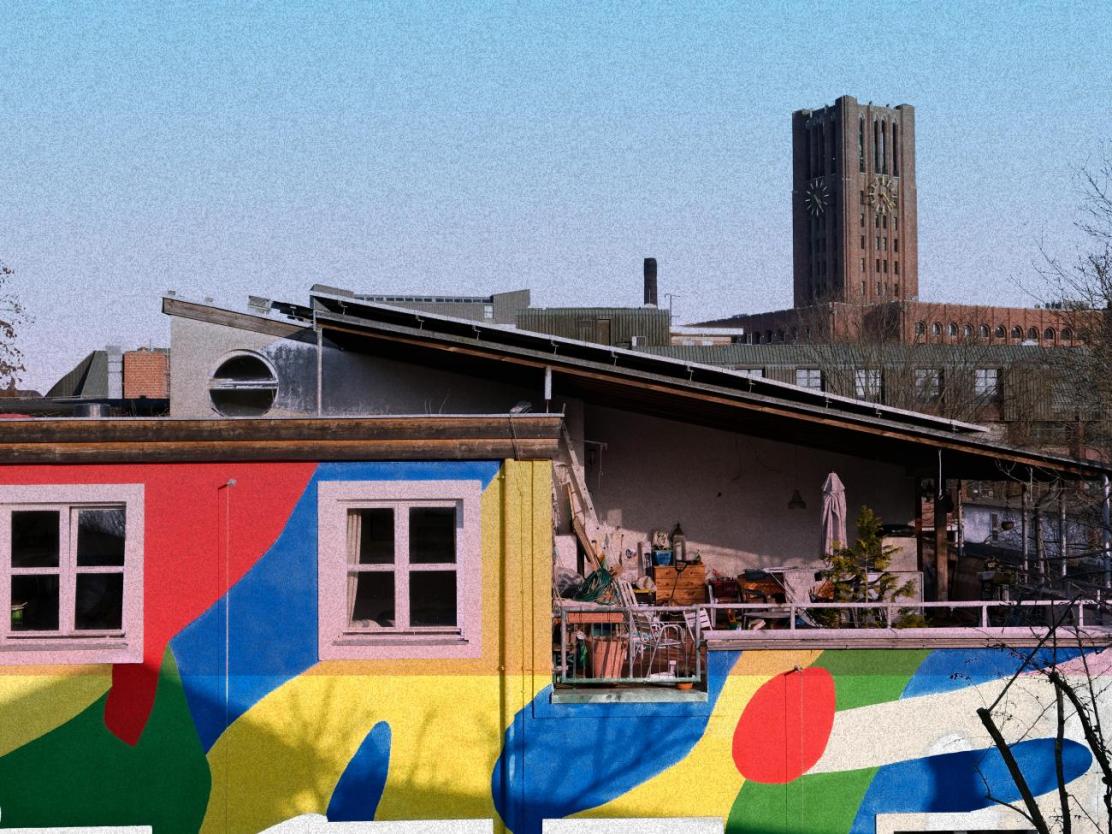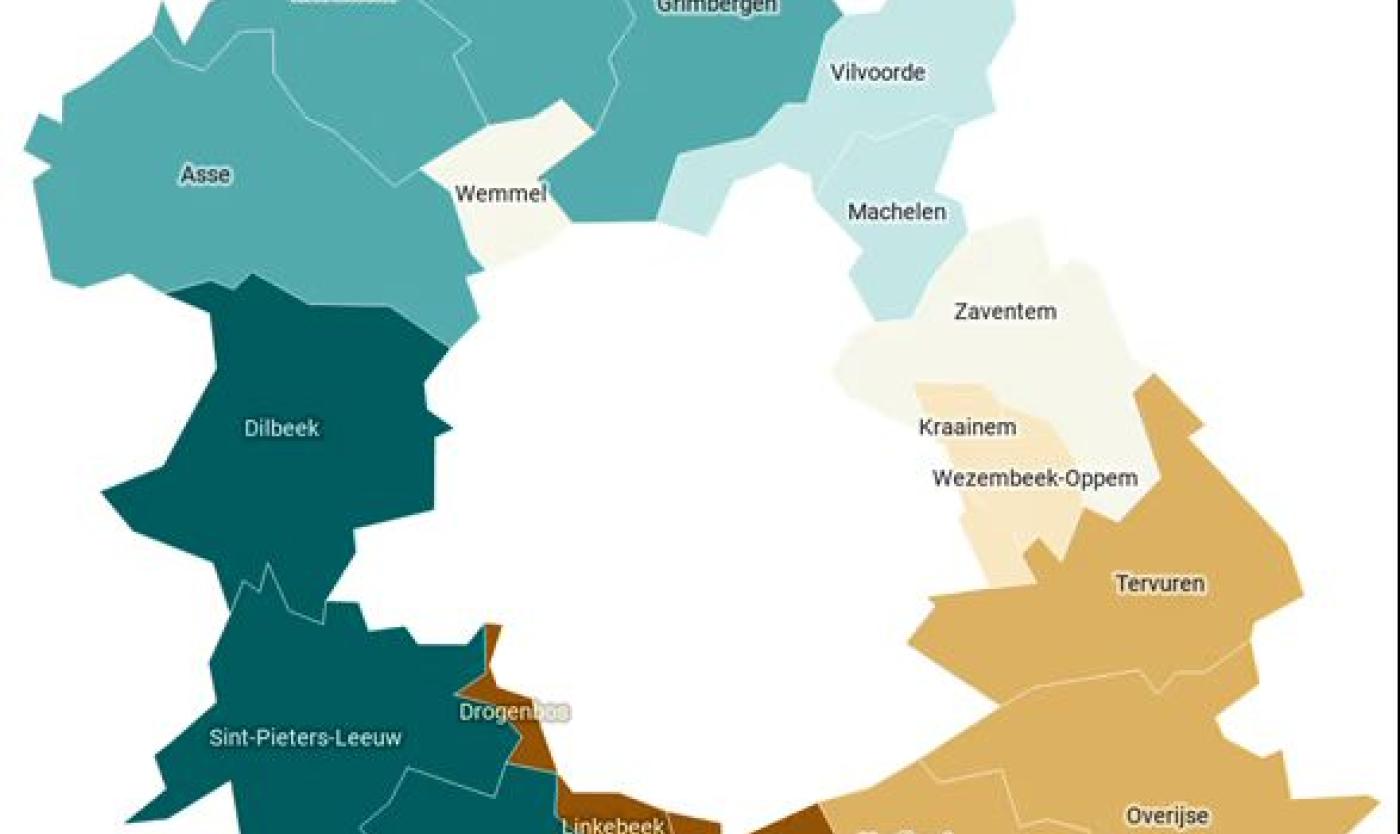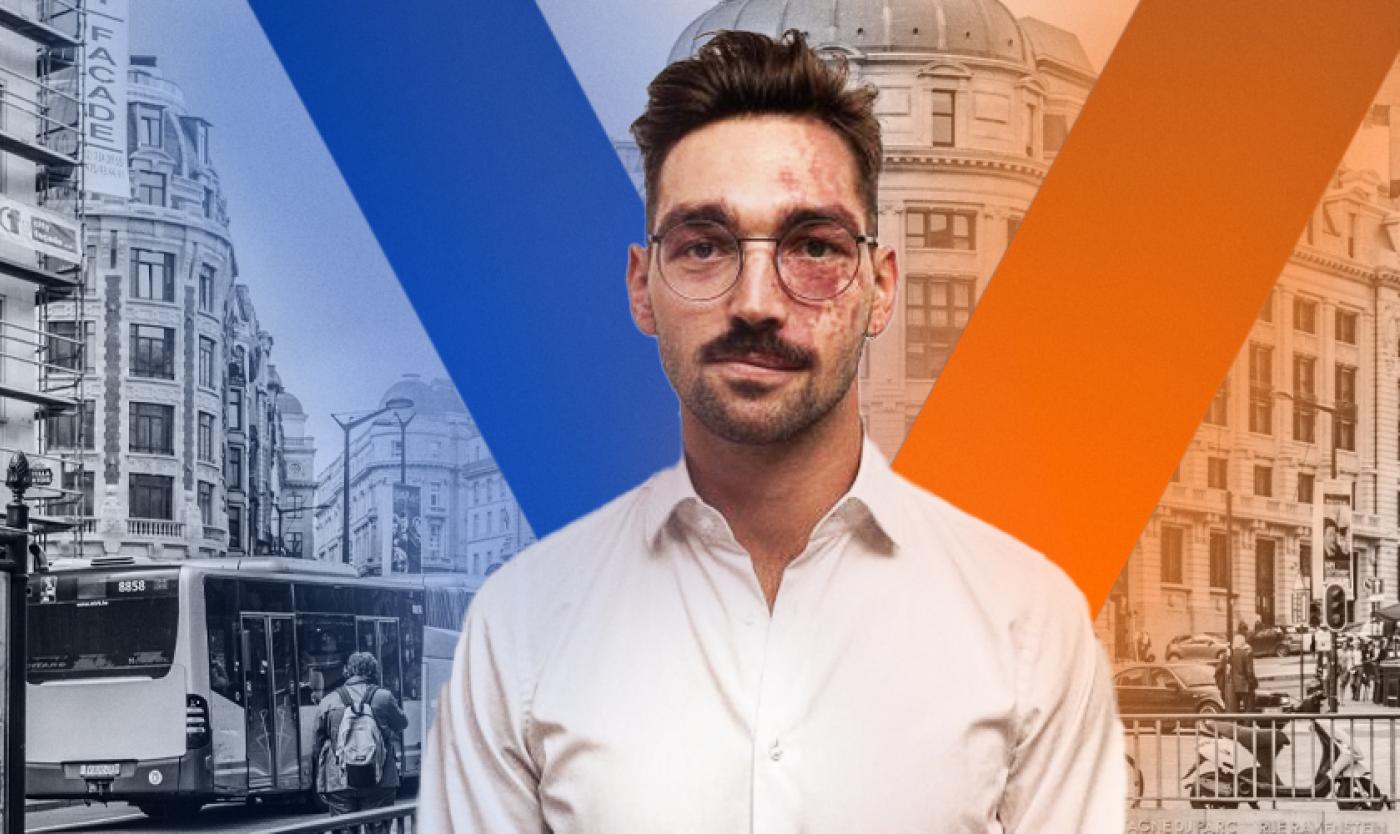
Bas van Heur is professor in Urban Studies aan de VUB en promotor-woordvoerder van het Brussels Centre for Urban Studies (BCUS). “StadsSalonsUrbains is een lezingenreeks over stedelijke vraagstukken die we al sinds 2014 organiseren. Het thema van dit jaar is Infrastructures of Urban Welfare. Internationale sprekers komen er een antwoord formuleren op de vraag welke stedelijke infrastructuren mensen nodig hebben voor hun welzijn.”
Bas van Heur: ‘When you think of infrastructure, you quickly think of networks of roads and utilities, but there is also community infrastructure for education, care and social security. Within the lecture series, we focus mainly on that infrastructure, on places in the city that bring people together. Those so-called ‘third spaces’ can be very broad: from green or other public spaces to the shared management of water infrastructure, for example. Our infrastructure for urban well-being is under great pressure due to privatisation of public space, gentrification and neoliberalism. At the same time, in response, you see more and more counter-movements emerging that try to rethink community infrastructure, through more civic governance, among other things.’
"International speakers come to answer the question of what urban infrastructures people need for their well-being"
The lectures will take place at USquare. In what way does it itself fulfil a role as a third space?
‘USquare in itself frames itself within a classic urban ‘top-down’ development project in which government actors collaborate with the VUB and ULB. The social infrastructure projects discussed are often smaller-scale and rather ‘bottom-up’, but you can see that USquare fulfils similar functions. On the one hand, it has become a public space by breaking open the old barracks walls, allowing Brussels residents to increasingly appropriate the site. On the other hand, there is the temporary use of spaces and the site under the name UR Square with a constantly changing offer, from yoga to communal dinners and various parties. The challenge will be to maintain this flexibility and openness to initiatives also in the near future when all the buildings have been given a definitive function. The role of the VUB and ULB in supporting the social infrastructure may also become important. One example is the large entrance hall on General Jacques Avenue, which is used on a continuous basis for lectures, receptions and exhibitions, often wider than just academic. It has become a popular venue in a very short time. On the first floor is the OpenLab, which focuses on bringing together citizens, non-academic organisations, researchers and other urban actors. There are also research groups here that have an urban, engaged and ecological approach in their DNA: my own research group Cosmopolis (VUB), but also groups like SONYA and CEESE from ULB. That fits in very well here; it creates an interesting dynamic, also for the cooperation between VUB and ULB. I am therefore an absolute fan of this place.’

Bas van Heur (photo credits: Hadrien Duré)
Which examples from Brussels capture your imagination?
‘It depends on who you talk to. Some will say that Brussels is ten years behind cities like Barcelona and Berlin. On the other hand, Brussels has a very strong, dynamic and diverse civil society. You therefore see interesting examples in all areas: Community Land Trust Brussels wants to create social housing based on the community land trust model, where land has no market value and access to affordable and quality housing is a fundamental right. Tournevie is an affordable and ecological tool library, the Supernova cooperative now has over 3,000 members and recently bought the Cinema Nova cinema, there are the neighbourhood kitchens of Cuisines de Quartier, Terre-en-vue acquires farmland for ecological farmers. Many of these accessible places also act as meeting places.’
"Some say that Brussels is ten years behind cities like Barcelona and Berlin. On the other hand, Brussels has a very strong, dynamic and diverse civil society"
Which lecture are you looking forward to in particular?
‘On Friday 7 March, Silke Van Dyk from the University of Jena will speak. Among other things, she did research on what role private property plays in the reproduction of social inequality. She will give a presentation on the rise of the new municipalism (the drive to achieve a form of self-government at the municipal or urban level) based on field research in Barcelona. I also think the last speaker on 4 April is definitely worthwhile: Stavros Stavrides from Athens is one of the big names in the debate on ‘urban commons’, which are public spaces under the direct care and management of communities.
Program Stadssalonsurbains
- Friday 7 March - Silke VAN DYK (Jena) - New Municipalism and Infrastructures of Urban Welfare: Collective Ownership versus Community Capitalism
- Thursday 13 March - Isabelle ANGUELOVSKI (Barcelona) - Are urban greening and climate justice compatible?
- Friday 21 March - Julie FROUD (Manchester) - Renewing urban foundational infrastructures: access, coordination and citizenship in the water system
- Friday 28 March - Lia KARSTEN (Amsterdam) - Cities through the eyes of children and young families: a journey through history (1950-2020)
- Friday 4 April - Stavos STRAVIDES (Athens) - Urban potentialities and emancipatory futures.
The lectures will take place from 17:30 to 19:30 each time at USquare, General Jacques Avenue 210A, 1050 Ixelles. The lectures and interviews with the speakers can also be followed online on the Twitch page of the lecture series and later watched as a recording on the Vimeo page of the Brussels Centre for Urban Studies.

NSIS en BCUS
NSIS - Networks for Societal Impact through Science - is an initiative of the VUB Vice-Rectorate for Research. NSIS supports interdisciplinary research networks at the VUB that address societal challenges. Through five-year funding, these networks strengthen the VUB's impact on society by encouraging collaborations and expanding their expertise. These networks create lasting impact in key sectors such as urban studies, healthcare, sustainability, mental health and migration.
The Brussels Centre for Urban Studies (BCUS) is one of the six networks of the NSIS and is led by Professor Bas van Heur. BCUS is one of the largest centres of its kind in Europe and brings together researchers from the social, human and engineering sciences. BCUS aims to increase the visibility of urban research at the VUB and develops and supports inter- and transdisciplinary research projects in the field of urban studies. BCUS also stimulates networking between the different research groups at the VUB and of researchers in international and local networks. BCUS also provides a unique platform to realise synergies between research and teaching thanks to the involvement of several members in the VUB-ULB MSc in Urban Studies. Moreover, the recent move of BCUS to the new USquare site creates several opportunities to further increase the critical mass of urban research capacity, specifically with regard to societal engagement and science valorisation.

